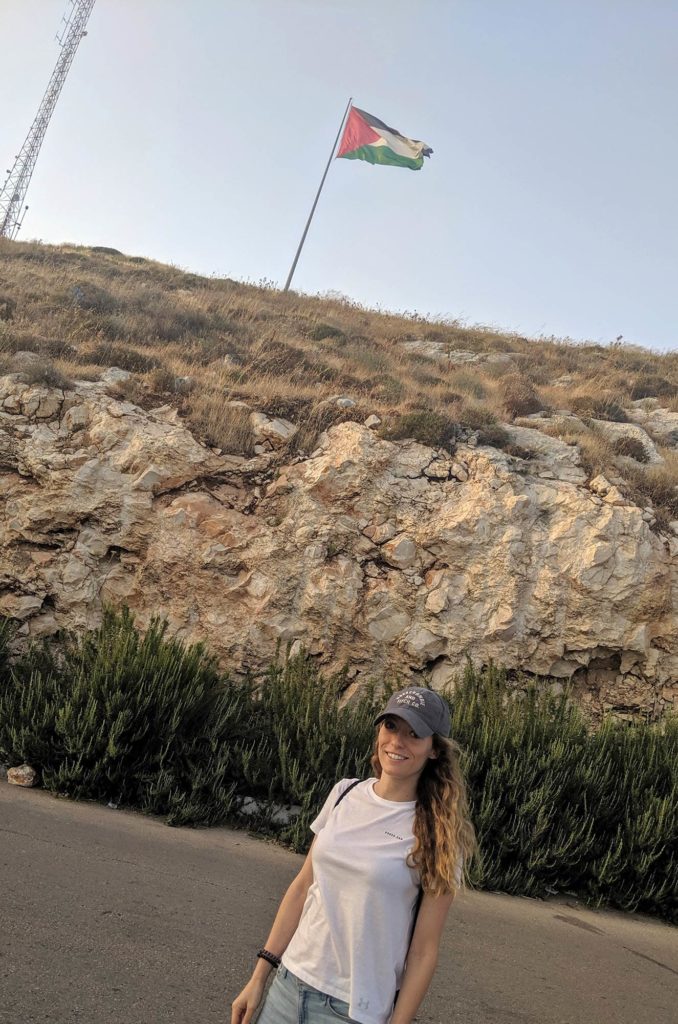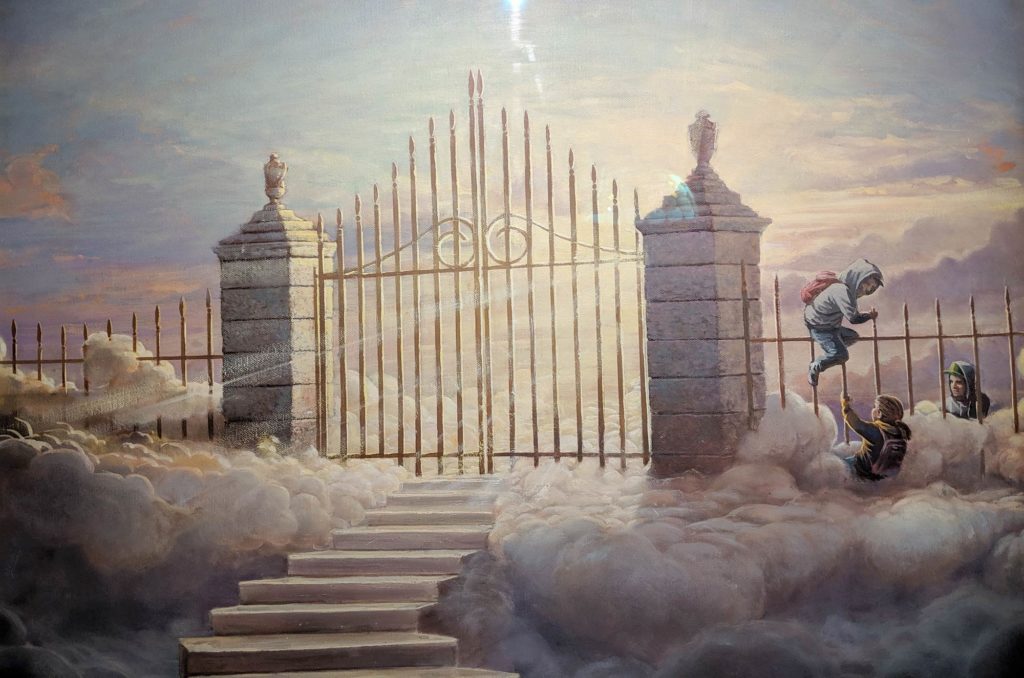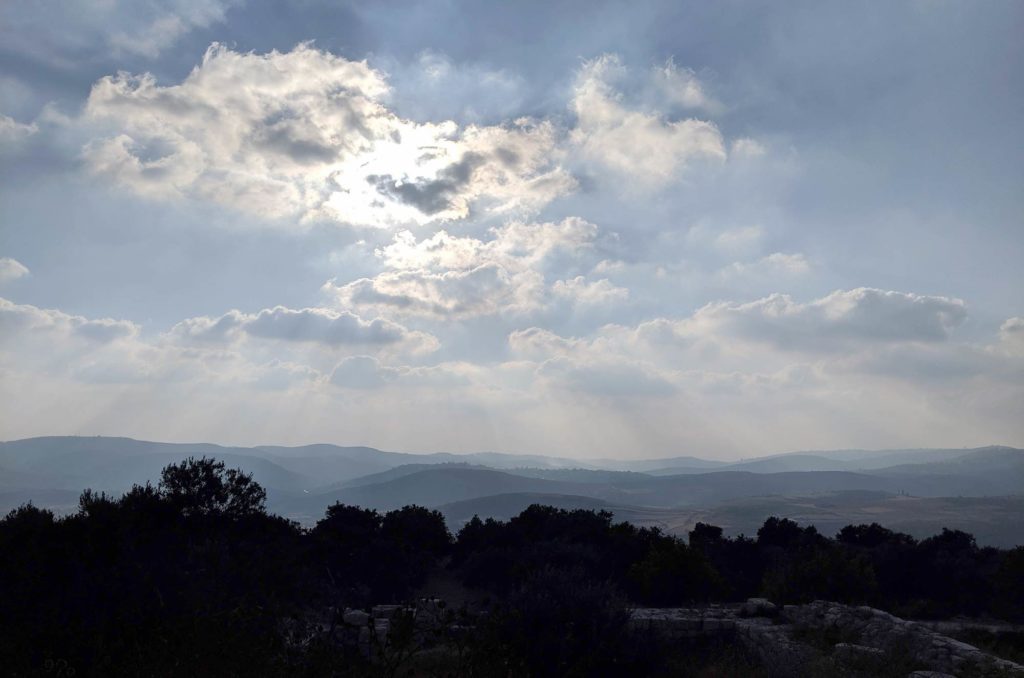Palestinian dreams matter
Posted in: peopleofanera
Lena is on the Associate Board at Anera
When I was young, we often celebrated Black History Month at school by reading about Martin Luther King, Jr.
The legendary civil rights leader was also a great speaker, and his words were powerful. King’s most famous quote is, of course, from a speech that he delivered from the steps of the Lincoln Memorial in 1963.
“I have a dream…”
“I have a dream that my four little children will one day live in a nation where they will not be judged by the color of their skin but by the content of their character…”
King dedicated his life to the struggle for equality and his moral clarity and righteous stances continue to inspire people.
There’s no shortage of injustice and inequality in our world today. And like all people struggling for a better life and a brighter future, Palestinians have the right to pursue their dreams and feel safe in their homes and communities, too.
As a half-Palestinian, I often heard stories about my mother’s family fleeing Jaffa in 1948. It’s the same story that ties hundreds of thousands of Palestinian refugees together. They left home with nothing but the clothes they wore and the keys to their homes, determined to return after the violence subsided. My mother’s family was luckier than most Palestinian families. After her parents walked across the border to Jordan with four young children, her father was ultimately able to find a job and send his children to school. But for many Palestinian refugees who fled in 1948 and later in 1967, the reality is different and hope is fading.
During the summer of 2019, I interned at Tomorrow’s Youth Organization, an American non-profit based in Nablus, Palestine. The center supports refugees and the most marginalized communities of Nablus, offering children and their families psychosocial educational services. As an intern, I was responsible for creating and implementing the day-to-day summer camp program for kids who had just finished third grade.


The children at Tomorrow’s Youth Organization are from extremely tough backgrounds. As refugees, most of their childhoods have been unfairly confined to the walls of a refugee camp. That means little if any room to play and explore, a lack of basic infrastructure, crowded spaces, and high rates of unemployment. Amidst a backdrop of long-term conflict and constant exposure to violence, there are few spaces and opportunities for Palestinian kids to be, well, kids.
Palestinian children are forced to say goodbye to their childhoods too soon. As often as I could, I encouraged the children that I worked with to dream, to think creatively, to try to paint a future beyond the harsh strokes of their daily realities.
A few weeks into the summer camp, I passed out paper clouds to my class and asked each kid to write down a dream for his or her family, community, country, and the world. They looked up at me with big eyes and confused expressions. Schools in Palestine are still based on traditional education methods and classes rarely engage kids with critical thinking or creative projects.
I offered the kids a couple of examples and reassured them that there were no right or wrong answers.
When I read through all the paper clouds that night, I felt a sense of hopelessness. The dreams they had were simple, but profound. They somehow reflected both innocence and maturity. And though they seemed reasonable, for most Palestinians, they would continue to be a dream.
Free schools for children.
Clean streets and clean water.
Enough hospitals in communities.
More food for people.
More jobs for the unemployed.
Happiness and safety.
Peace among nations.
Freedom.


These are the dreams of eight-year old Palestinian children. I imagine they resemble the dreams of Syrian refugees traumatized by a civil war entering its ninth year, the dreams of immigrant children who are trapped in cages at the US-Mexico border, and the dreams of families from Flint, Michigan who waited five years for clean water.
Dreams matter. Palestinian dreams matter.
That is why I’m proud to support Anera. Anera’s work in Palestine, Lebanon, and Jordan is playing a major role in transforming futures for Palestinian refugees and marginalized communities.
For more than fifty years, Anera has championed community-centered approaches to bring hope, opportunity, and dignity to Palestinians.
Through working with local partners on the ground, Anera helps build schools for children, delivers life-saving supplies and medicine to clinics and hospitals, and supports water purification and agricultural projects to help Palestinian families lead a better life.
Anera knows that real impact starts by empowering and uplifting people and its work allows Palestinians to take one more step towards making dreams a reality.
As Black History Month comes to an end, this is my dream:
“I have a dream that Palestinian children will one day run freely in a land where they will not fear being chased.”
What’s yours?


OUR BLOG
Related
In this log, Anera provides updates on unfolding war in Palestine and our response. In some cases, additional activities may be added retroactively to the daily entries as we receive additional program reporting. Questions? See our FAQ page July 10,…
